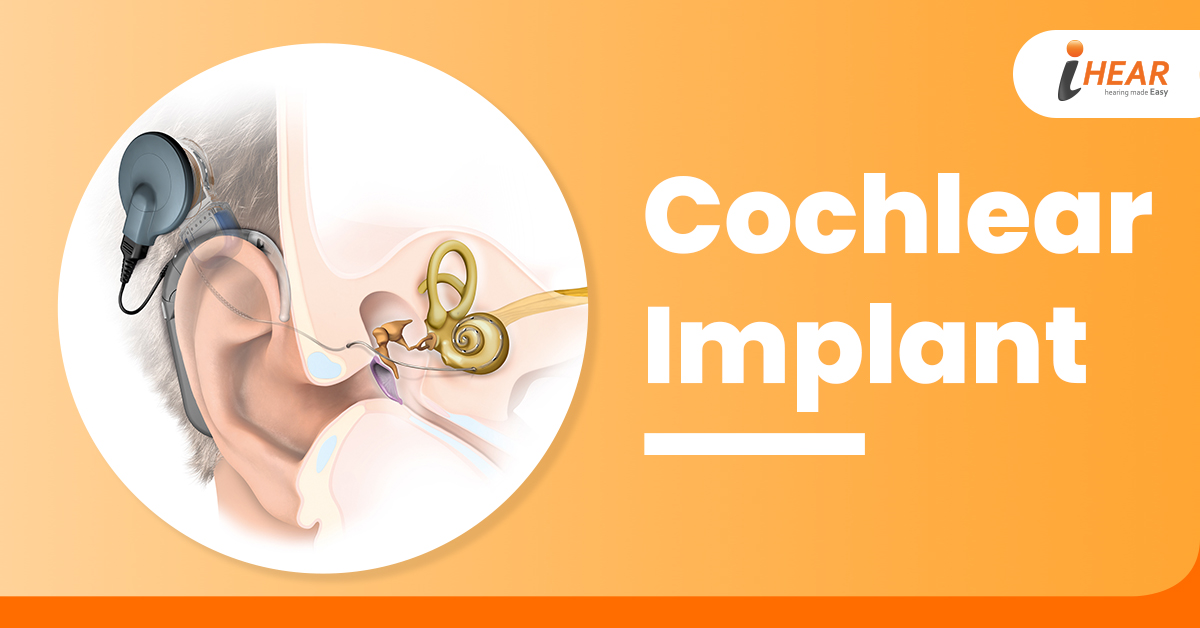Cochlear Implant
Cochlear implant is an electronic device that partially restores hearing in people who have severe hearing loss due to damage of the inner ear and who don’t benefit from hearing aids. A processor behind the ear captures and processes sound signals, which are transmitted to a receiver implanted behind the ear.
What is a cochlear implant?
A cochlear implant is a small, complex electronic device that can help convey a sense of sound to someone who is profoundly deaf or hard of hearing. The implant consists of an outer part behind the ear and a second part that is surgically placed under the skin. The system consists of the following parts:
- A microphone, which picks up sound from the environment.
- A speech processor, which selects and arranges sounds picked up by the microphone.
- A transmitter and receiver/stimulator, which receive signals from the speech processor and convert them into electric impulses.
- An electrode array, which is a group of electrodes that collects the impulses from the stimulator and sends them to different regions of the auditory nerve.
The implant does not restore normal hearing. Instead, it can give a deaf person a useful representation of the sounds around them and help them understand speech.
How does a cochlear implant work?
A cochlear implant is very different from a hearing aid. Hearing aids amplify sounds so they can be picked up by damaged ears. Cochlear implants bypass the damaged parts of the ear and directly stimulate the auditory nerve. The signals generated by the implant are transmitted via the auditory nerve to the brain, which recognizes them as sound. Hearing with a cochlear implant is different from normal hearing and takes time to learn.However, it allows many people to recognize warning signs, understand other sounds in the area, and understand speech in person or over the phone.
How does someone receive a cochlear implant?
Using a cochlear implant requires both surgery and intensive therapy to learn or relearn the sense of hearing. Not everyone works at the same level on this device. When deciding on an implant, advice should be given by specialists, including an experienced cochlear implant surgeon. The process can be expensive. For example, a person’s health insurance may cover the cost, but not always.Some people refuse a cochlear implant for various personal reasons. Surgical implants are almost always safe, although as with any type of surgery, complications are a risk factor. Another problem is learning to interpret the sounds of the implant. This process takes time and practice. Speech therapists and audiologists are often involved in the learning process.All of these factors must be considered prior to implantation.
If you looking for a hearing and speech treatment center then definitely iHear can help you out for any after-sales services you can easily trust iHear service clinic which provides you a top-notch service within a proper time and place. For any Hearing aid dealer, iHear is in the top position for the dealership, iHear also has a good price range with a variation of in-ear products in their segment of Hearing aid in Kolkata. The best Hearing Aid Centre in Kolkata.

